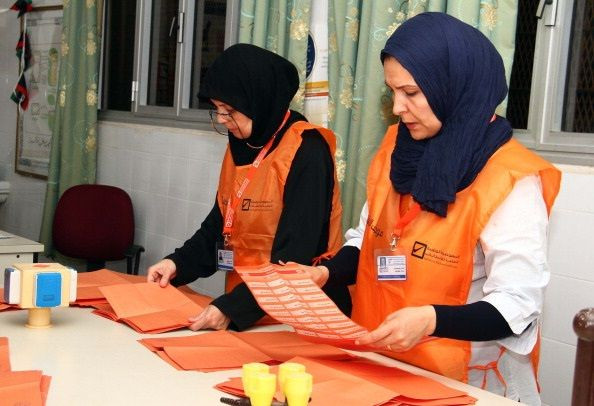US Consulting Firm Builds Open Source Mobile Voter Registration System For Libya

After four years of constant fighting between rebel factions and the Islamic State group, many Libyans are skeptical about politics or fearful about participating in elections. And the thousands who have been displaced often do not know how to cast their ballots.
It's still unclear when the next election will take place, partly because there are two competing powers. The Libyan Parliament extended its mandate past an Oct. 20 deadline, and representatives of the group said last month they plan to hold office for the foreseeable future. United Nations envoy Bernardino Leon has called on parliament (the internationally recognized government) and the de facto administration led by a former military commander to come to the table to negotiate a power-sharing agreement, one that would be followed by national elections.
A timetable for those negotiations has not been set. But election officials are starting to prepare. Libyans can now register to vote and receive election updates from their homes thanks to a new text messaging system created by a digital consultancy group in the United States. Smart Elect, designed by Caktus Group, a technology firm based in Durham, North Carolina, is a free open source platform that can be used by anyone to build an SMS [short message service] voter registration system as well as the tools needed before, during and after an election to support it.
Caktus Group hired a third party to complete and audit the system before rolling it out to Libyans to use, said Tania Lee, a member of the Caktus team. The auditing team tested for potential hacking scandals and fraud, she said.
So far, 1.5 million Libyans have registered with the system. According to data from the project, about 905,000 males and 603,000 females have registered, the largest number between the ages of 18 and 29.
The Libyan High National Elections Commission (HNEC) hired Caktus Group to be the technical lead on building and open sourcing the SMS voter registration and polling management system. HNEC, which is an independent organization but is supported by the U.N. mission in Libya, funded the entire voter registration project. In 2014, the U.N. mission received a mandate to develop a text messaging or SMS voter registration system for elections in the country. In the last parliamentary elections, the U.N. sent 20 international electoral advisers to Libya to support HNEC.
In the 2014 parliament elections, hundreds of thousands of Libyans used the SmartElect system to register to vote. Still, though, barely a third of Libya's eligible voters registered, the Economist reported at the time, and turnout was around 18 percent.
Officials at HNEC are hopeful the new system will continue to gain momentum and that thousands more will sign up in the next year.
The U.N. said in a statement Monday that after consultations with both ruling bodies in Libya, a proposed presidential council would be expanded from six to nine members, including a prime minister, five deputy premiers and three senior ministers. Members of Libya's two ruling parties were scheduled to meet separately Tuesday to discuss the U.N. proposal, but neither party has issued an update on the discussions.
Meanwhile, thousands of migrants continue to flee Libya by boat to Europe, where, if they survive the journey, they are filing for asylum and U.N. protection.
© Copyright IBTimes 2024. All rights reserved.




















